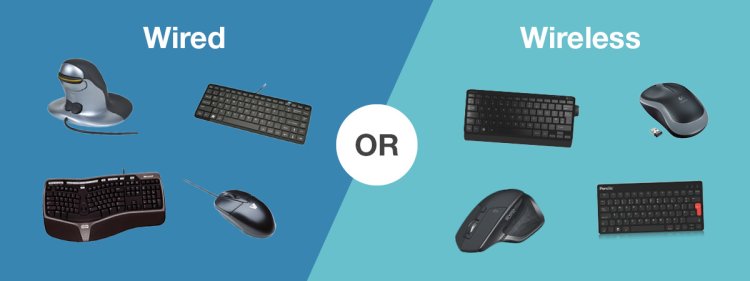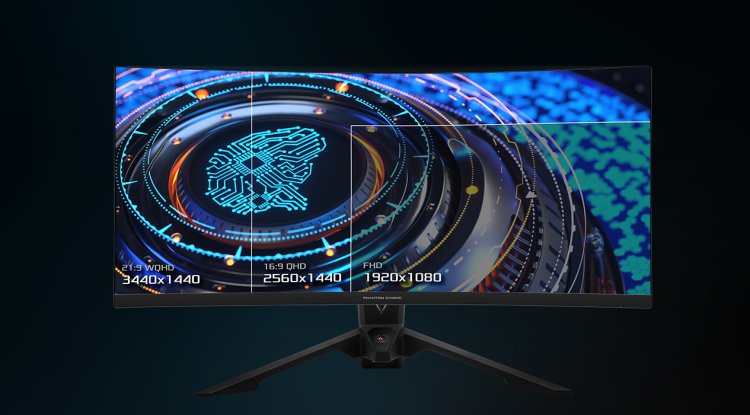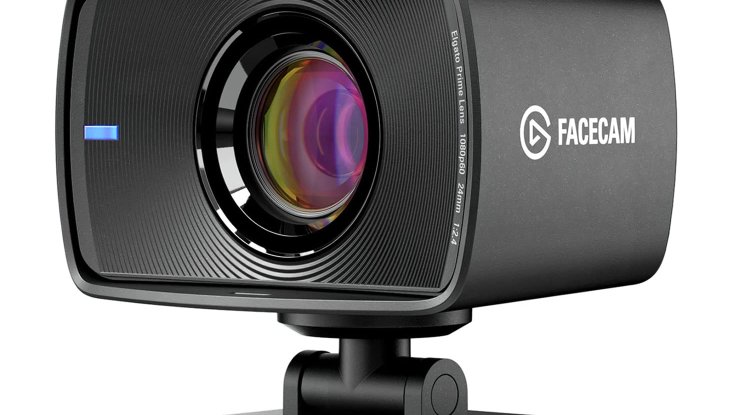The Benefits and Drawbacks of Wireless and Wired Keyboards
When it comes to computer peripherals, keyboards are an essential component for inputting commands and typing. Keyboards are available in two main variants: wireless and wired. Each type has its own set of advantages and drawbacks, which should be considered when selecting the most suitable option for your needs. In this article, we will explore the benefits and potential problems associated with both wireless and wired keyboards.

Wireless Keyboards: Freedom and Convenience
Benefits:-
Flexibility and Portability: Wireless keyboards offer greater freedom of movement since they do not require a physical connection to the computer. This allows you to position yourself comfortably and maintain a relaxed posture while typing. Wireless keyboards are also easy to carry around, making them ideal for users who frequently travel or work in different locations.
-
Minimal Cable Clutter: Without the need for cables, wireless keyboards help keep your workspace tidy and organized. This can lead to improved aesthetics and increased desk space for other items.
-
Wireless Connectivity Options: Most wireless keyboards utilize Bluetooth or RF (Radio Frequency) technology for wireless connectivity. This means they can be connected to various devices such as laptops, tablets, and smartphones, providing versatile usage options.
-
Battery Life and Dependency: Wireless keyboards are powered by batteries or rechargeable batteries. This means you need to monitor battery levels and ensure you have a spare set available. Battery life can vary, and if the batteries run out during use, the keyboard will become non-functional until the batteries are replaced.
-
Potential Interference: Wireless keyboards rely on radio signals, which can be susceptible to interference from other wireless devices or physical obstacles. This interference can lead to connectivity issues or delayed keystrokes, affecting the typing experience.
-
Connection Lag: In some cases, wireless keyboards may experience a slight delay in responsiveness due to the time it takes for signals to be transmitted wirelessly. While this delay is often negligible, it can be noticeable for fast typists or gamers who require instant input response.
Wired Keyboards: Stability and Reliability
Benefits:-
Stable and Reliable Connection: Wired keyboards connect directly to the computer via a USB or PS/2 cable, providing a stable and uninterrupted connection. This eliminates the risk of interference or connectivity problems that wireless keyboards may encounter.
-
Instant Plug-and-Play: Wired keyboards typically require no additional setup or software installation. Simply connect the keyboard to the computer, and it is ready to use immediately. This plug-and-play feature ensures instant functionality without any setup hassles.
-
No Battery Dependency: Unlike wireless keyboards, wired keyboards do not rely on batteries or require recharging. This eliminates the need to monitor battery levels or worry about running out of power during important tasks.
-
Limited Flexibility: The primary drawback of wired keyboards is their limited range of movement due to the physical cable connection. This can restrict your positioning options and may lead to a less comfortable typing experience, especially if you prefer to sit farther away from the computer.
-
Cable Clutter: Wired keyboards require a physical connection to the computer, resulting in cable clutter on your desk. This can affect the overall aesthetics of your workspace and potentially interfere with other devices or peripherals.
-
Less Portability: Due to their cable connection, wired keyboards are less portable compared to their wireless counterparts. Moving or transporting a wired keyboard requires detaching the cable and ensuring it is securely packed.
Also Check TP-Link Archer T9UH
Conclusion
Both wireless and wired keyboards have their own advantages and drawbacks. Wireless keyboards offer flexibility, portability, and minimal cable clutter, but they come with considerations such as battery life, potential interference, and connection lag. On the other hand, wired keyboards provide a stable and reliable connection, instant plug-and-play functionality, and no battery dependency, but they lack the flexibility and portability of wireless models and may contribute to cable clutter.
Consider your specific needs, preferences, and usage scenarios when choosing between a wireless or wired keyboard. If mobility and freedom of movement are important to you, a wireless keyboard may be the better option. However, if stability, reliability, and a clutter-free workspace are your priorities, a wired keyboard may be the more suitable choice. Ultimately, selecting the right keyboard depends on finding the balance between convenience and functionality that best aligns with your personal preferences and requirements.





































